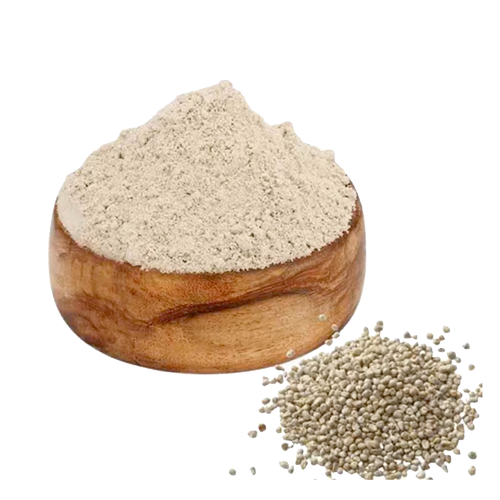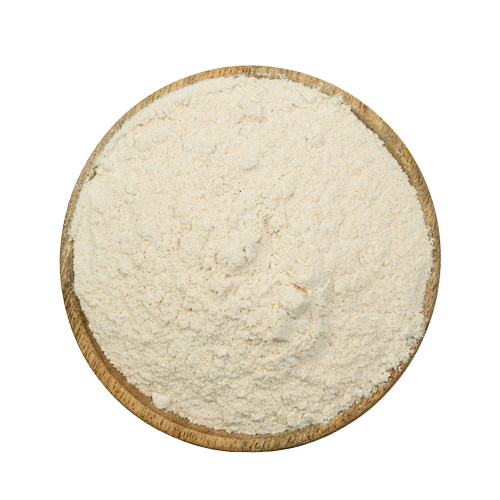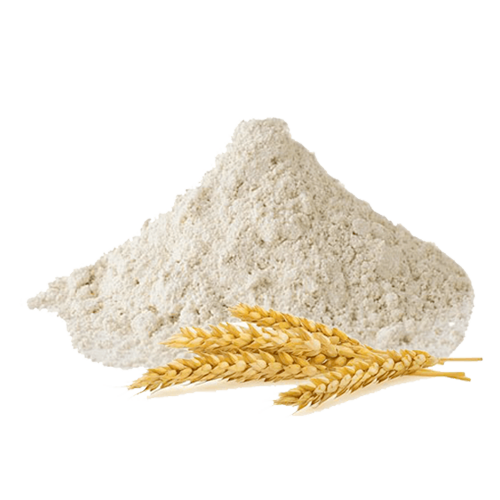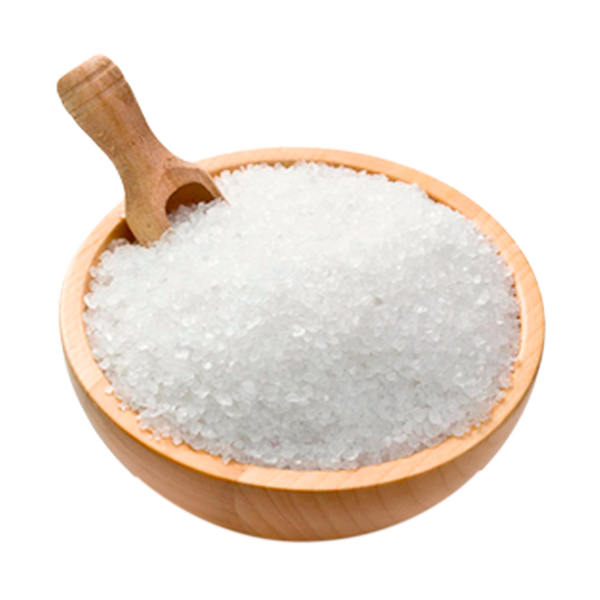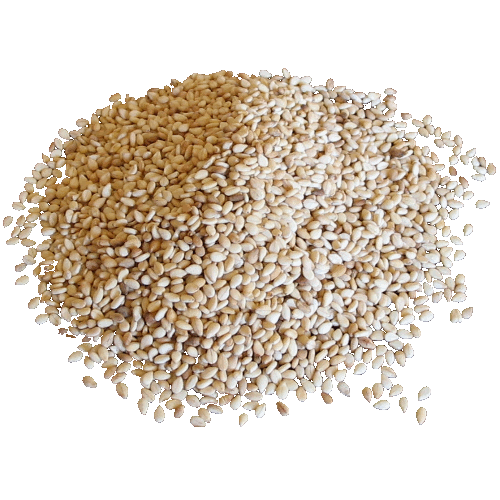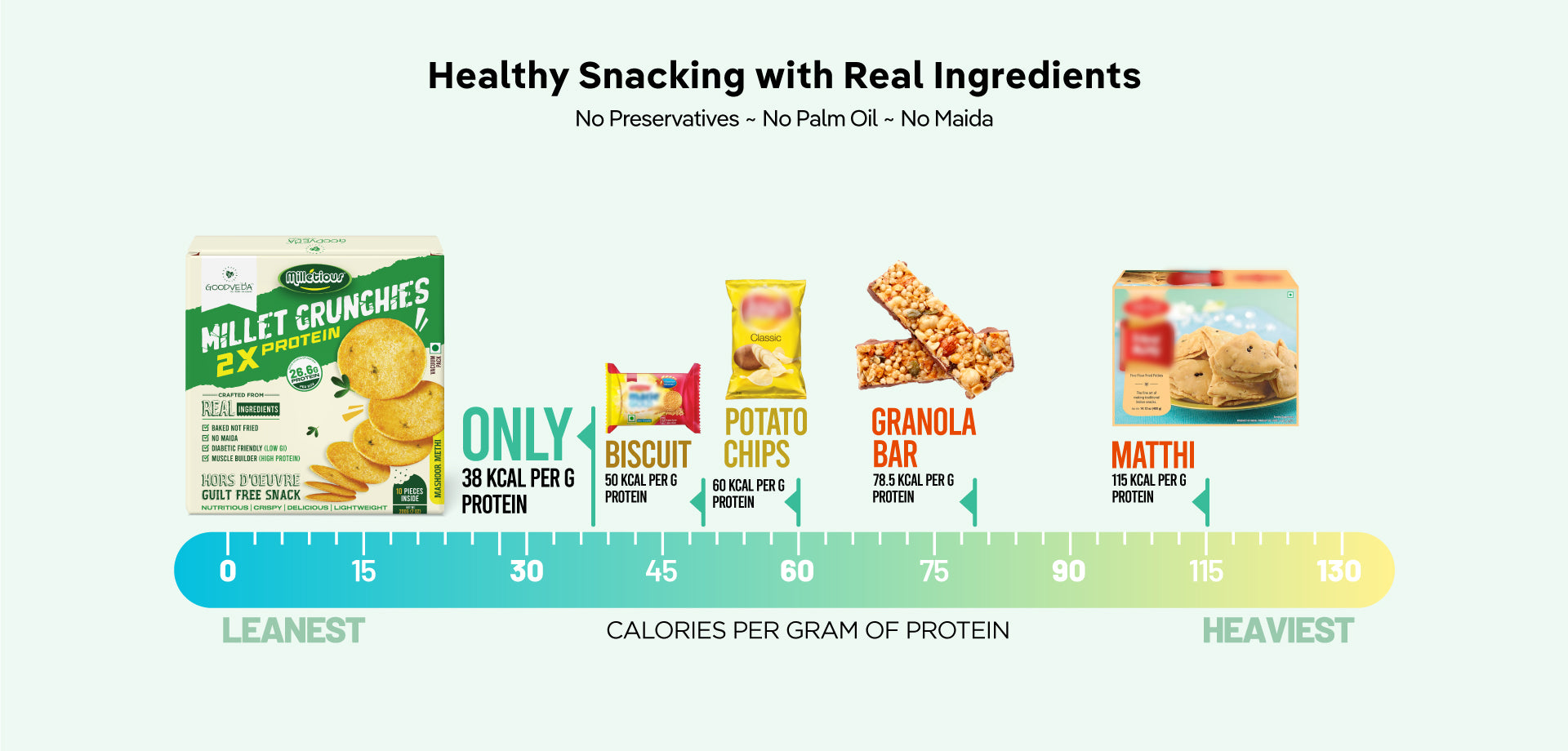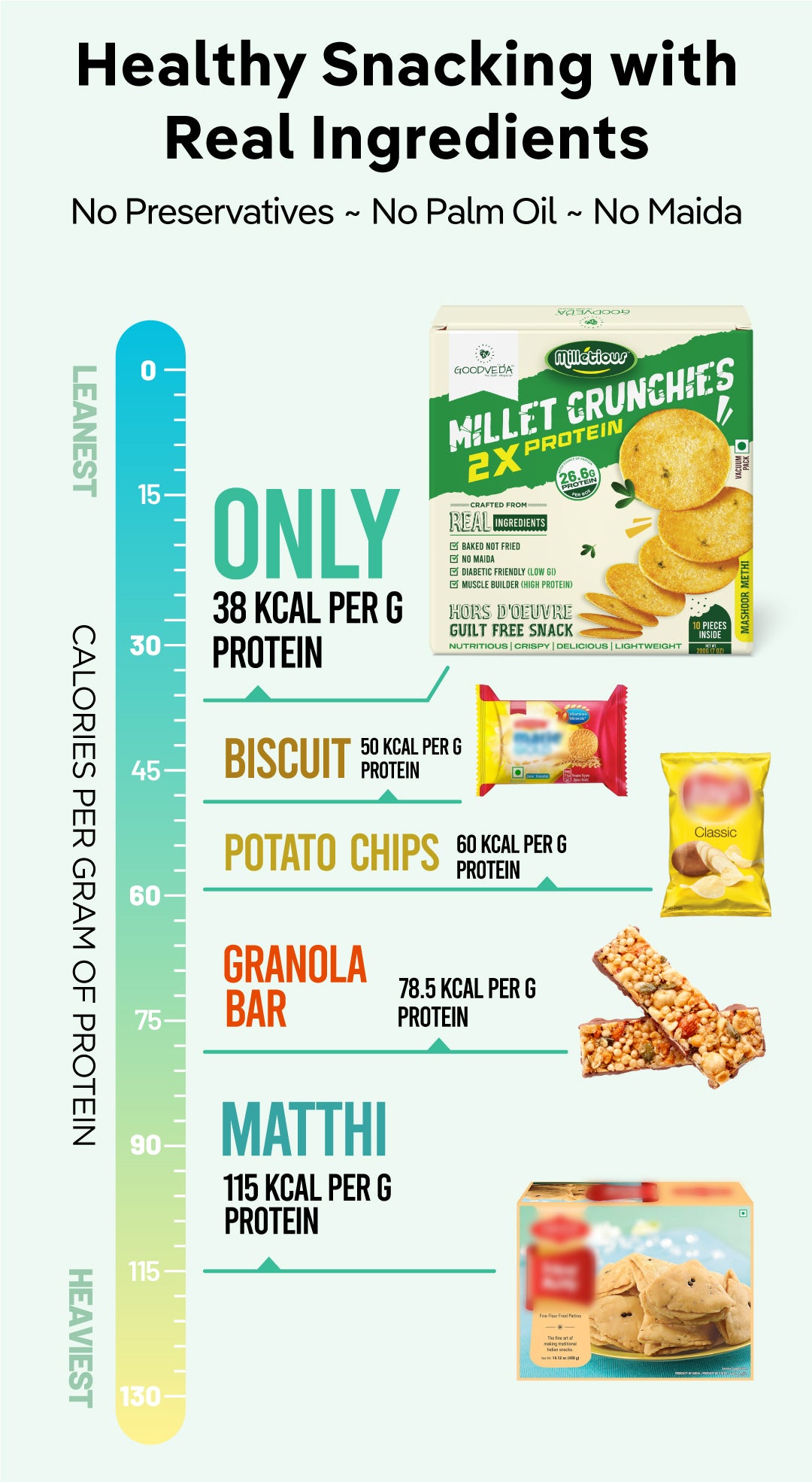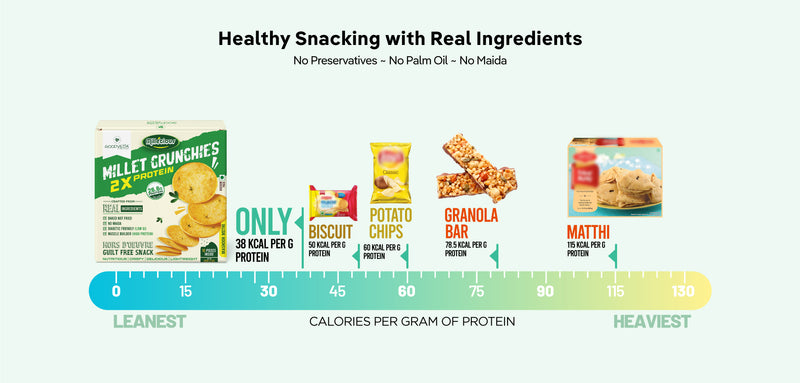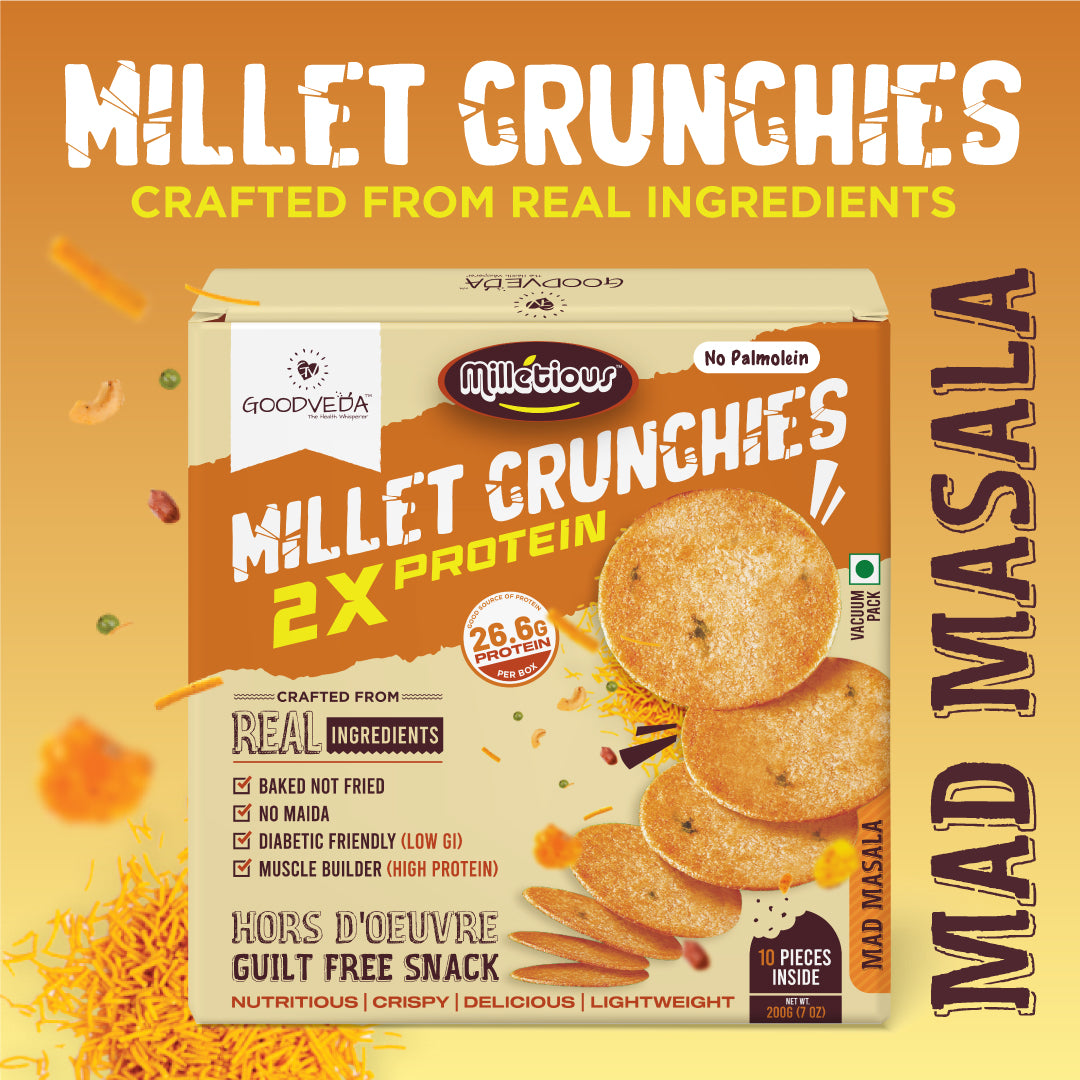

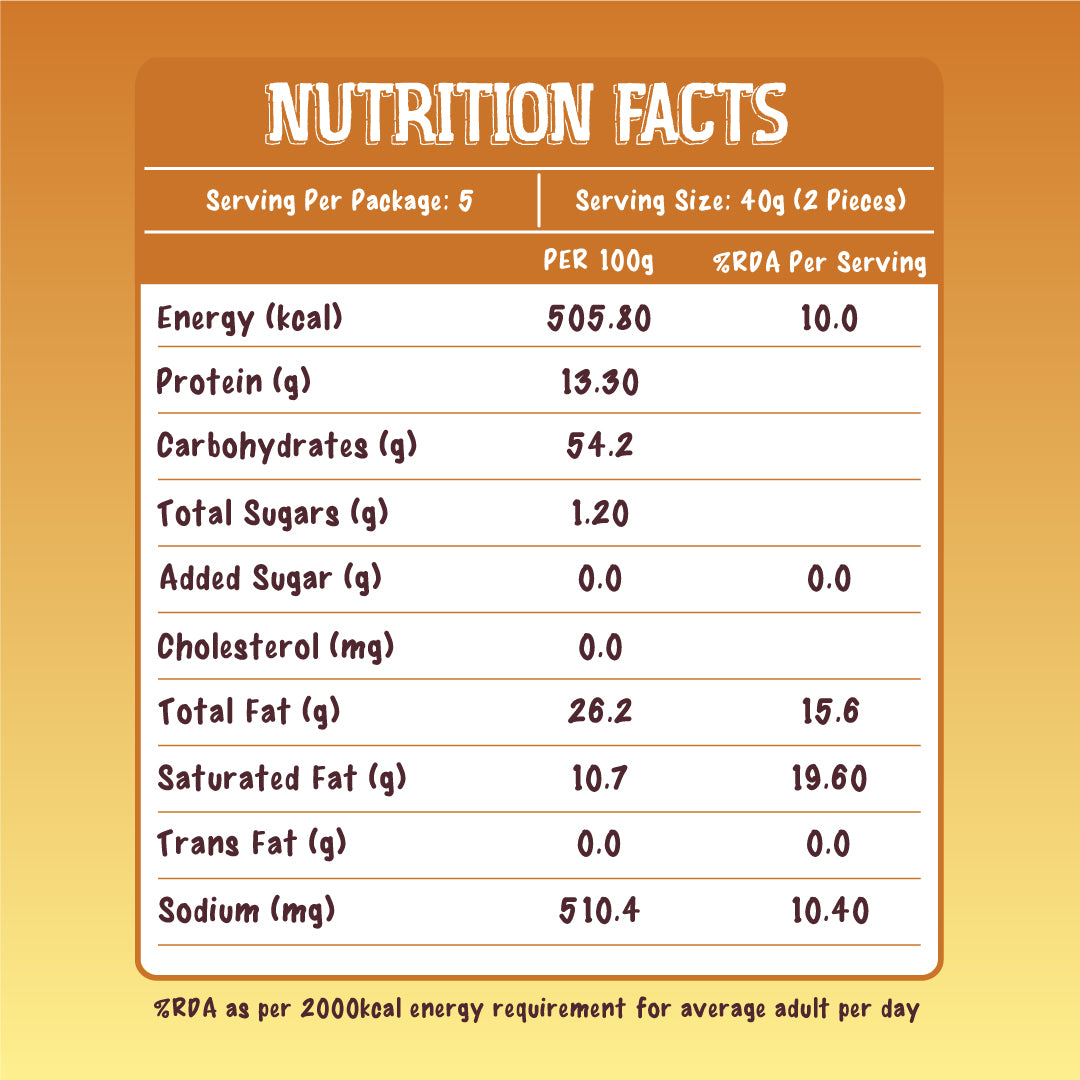
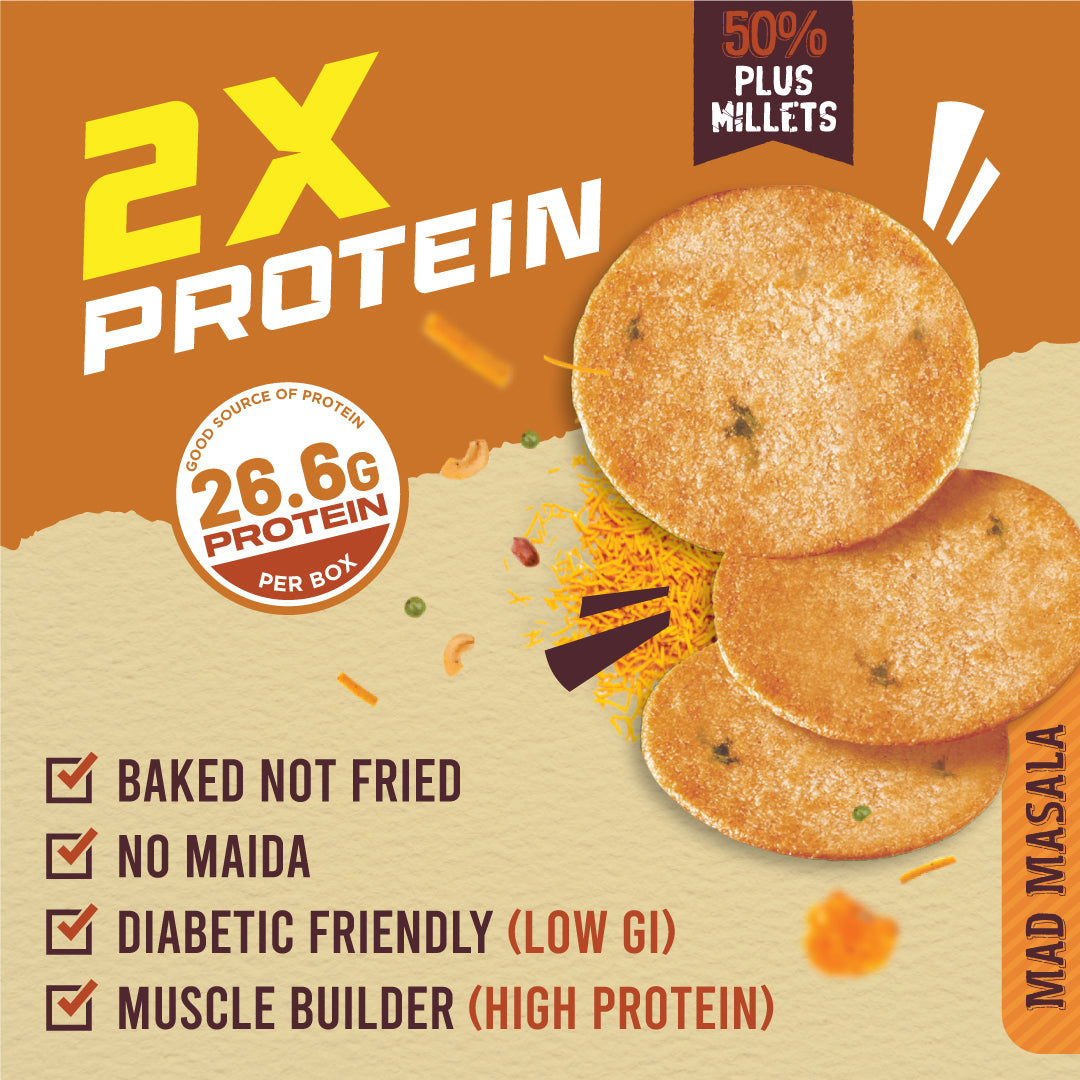
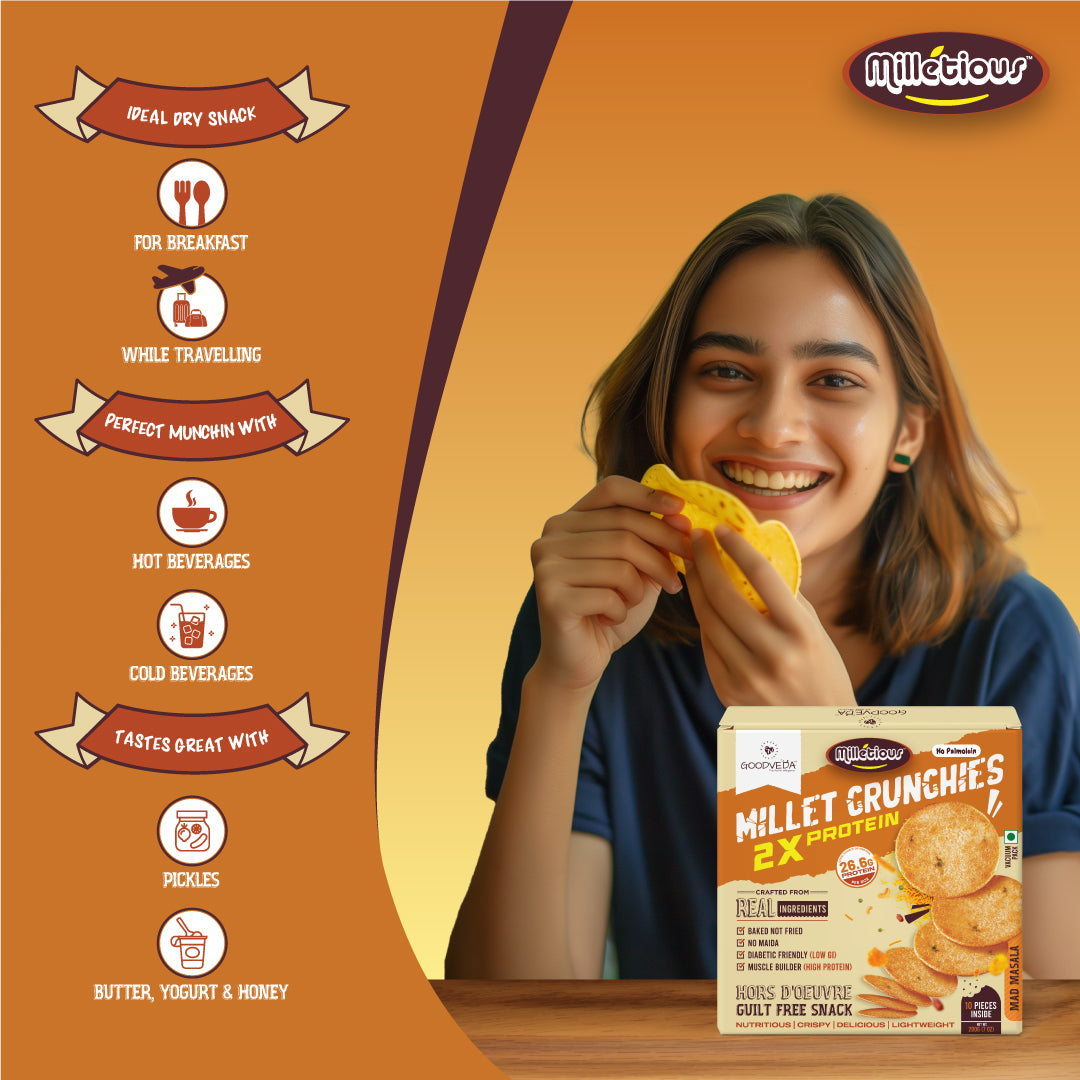


Benefits of Our Product
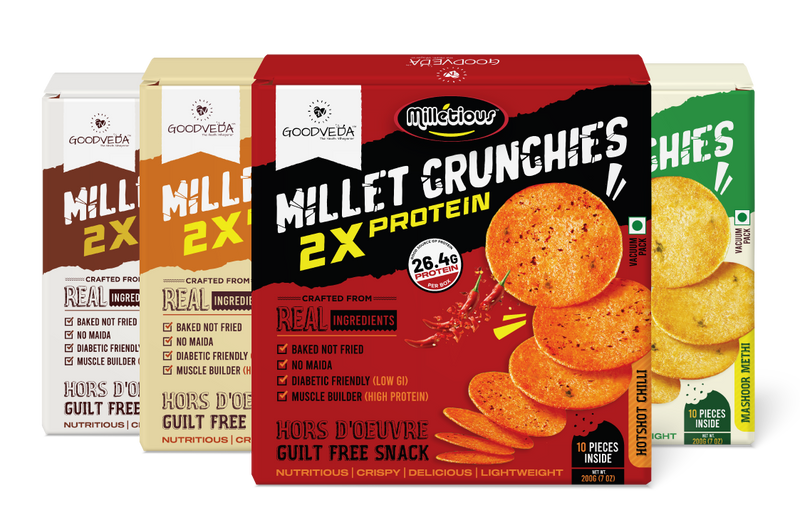

Supports Blood Sugar Control
It has a low glycemic index, which helps in maintaining stable blood sugar levels. This makes them an excellent snack choice for people with diabetes, reducing the risk of spikes in blood glucose.

Aids in Weight Management
Rich in fiber, millet crunchies promote a feeling of fullness, reducing overall calorie intake. They help curb cravings and support a healthy weight loss journey by keeping you satisfied for longer.

Supports Muscle Building
With 10.56 grams of protein per serving, millet crunchies provide essential amino acids for muscle repair and growth. This makes them an excellent snack for those looking to build or maintain muscle mass.

Keeps You Full Longer
The combination of fiber and protein in millet crunchies ensures you feel full for a longer period of time. This helps in managing hunger pangs and reduces the temptation for unhealthy snacking.

Improves Digestive Health
The dietary fiber in millets supports a healthy digestive system by promoting regular bowel movements and preventing constipation. This contributes to overall digestive health and well-being.
6 Month Money-Back Guarantee
Real Stories, Real Satisfaction
Why Millet Crunchies Stands out?
Buy NowAYURVEDIC GOODNESS
Frequently Asked Questions
What are the primary ingredients in Millet Crunchies?
Millet Crunchies are made from a blend of bajra (pearl millet), jowar (sorghum), and wheat flour, offering a nutritious and wholesome snack option.
How much protein do Millet Crunchies contain?
Each crunchie contains 10.56 grams of protein, making them a great choice for those looking to increase their protein intake.
Are Millet Crunchies a good option for weight management?
Yes, Millet Crunchies are high in fiber, which promotes fullness and helps reduce overall calorie intake, aiding in weight management.
Do Millet Crunchies contain palm oil?
No, Millet Crunchies do not contain palm oil. They are made with healthier alternatives to ensure better nutritional value and minimal environmental impact.
How do Millet Crunchies support muscle building?
With 10.56 grams of protein per serving, Millet Crunchies provide essential amino acids necessary for muscle repair and growth, making them an excellent snack for muscle building.
Are Millet Crunchies suitable for people with diabetes?
Yes, Millet Crunchies have a low glycemic index, which helps in maintaining stable blood sugar levels, making them suitable for people with diabetes.
What are the digestive health benefits of Millet Crunchies?
Millet Crunchies are high in dietary fiber, which supports a healthy digestive system by promoting regular bowel movements and preventing constipation.
Can Millet Crunchies help reduce sugar cravings?
Yes, the high fiber content in Millet Crunchies helps keep you full for longer, reducing the urge for sugary snacks and aiding in better weight management.
What makes Millet Crunchies environmentally friendly?
Millet Crunchies are made without palm oil, which helps reduce the environmental impact associated with palm oil production. Additionally, millets are drought-resistant crops, promoting sustainable agriculture.
Can Millet Crunchies be included in a diet for individuals with high cholesterol?
Yes, Millet Crunchies can be beneficial for individuals with high cholesterol. They contain fiber that supports heart health and helps manage cholesterol levels, provided they are consumed as part of a balanced diet.
Are Millet Crunchies safe for pregnant women?
Yes, Millet Crunchies are generally safe for pregnant women and can be a nutritious snack. They provide protein, fiber, and essential nutrients, but it’s always best for pregnant women to consult their healthcare provider to ensure they meet their specific dietary needs.
Are Millet Crunchies suitable for individuals with gluten intolerance?
Millet Crunchies are made with wheat flour, which contains gluten. Therefore, they are not suitable for individuals with gluten intolerance or celiac disease. Better consult your healthcare provider.












 High Protein
High Protein Low GI
Low GI No Palm Oil
No Palm Oil Not Fried Baked
Not Fried Baked High Fiber
High Fiber Made from millets (90%) and whole wheat (10%)
Made from millets (90%) and whole wheat (10%)





